Our class recently visited the Phillies Bridge Farm Project in New Paltz, NY. It was a rainy April day, but the energy and excitement of the farm team kept us going!
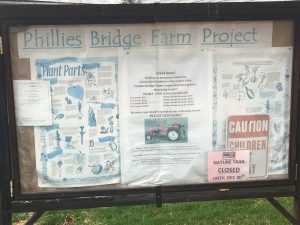
The Phillies Bridge Farm Project is run by a large team of directors, managers, farmers, and apprentices. On our visit we got the chance to meet a handful of them – Dan Guenther, one of the co-founders of the farm, Mr. Guenther’s wife, who described herself as a “naturalist who hates farming,” Myriam Bouchard, the farm’s administrative coordinator, and Rhyston Mays, a farm apprentice who recently graduated from Vassar!
The farm project has a really interesting history. A non-for-profit farm since 1999, Phillies Bridge provides a wide range of educational opportunities centering around local agriculture. They offer a summer day camp for kids where they can get their hands dirty and explore the Discovery Garden, as well as agricultural workshops for adults. But don’t get me wrong – they also grow a ton of
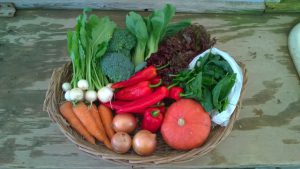
fresh and organic vegetables and herbs. The farm operates a large CSA program that allows customers to pick up a box (one of two sizes) of fresh produce and herbs every week. The farm offers over 150 varieties of vegetables, herbs, and flowers that you can get. And what’s more, CSA customers get the option to ‘pick-your-own-field’ any day of the week during daylight hours.
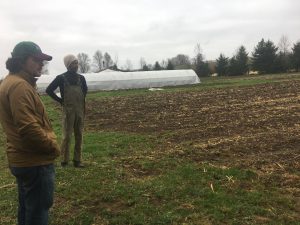
Hearing about Dan’s motivations for farming was pretty inspiring. One of the first things Dan did was hold up the acclaimed book, The Omnivore’s Dilemma, by Michael Pollan. Dan told us that basically everything he does falls along the same argument that Pollan makes – the American food system is unsustainable and unjust, and we need to do something about it. That something, for Dan, was starting the Phillies Bridge Farm Project. The farm seeks to show that local and sustainably grown agriculture can be economically feasible, ecologically sustainable, and can be done in a way that is socially just.
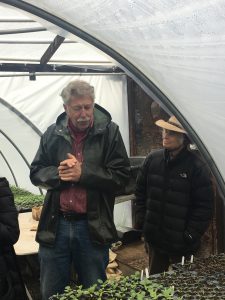
At this point in the visit the wind and rain were making it a bit hard to sit still, so our hosts took us on a walking tour of the farm. Though the nature trail was closed, the farm’s land was plenty beautiful. Phillies Bridge also has a recently built, climate-controlled hoop house where they grow plants until they’re ready to be transplanted to the outdoors. Inside, safe from the rain and surrounded on all sides by lush vegetation, our hosts afforded us the opportunity to simply look at and smell their produce as we pleased.
The Phillies Bridge Farm Project is a really cool place. The farm is beautiful, its motivations are so good, and everyone we met seemed to really believe in the farm’s mission statement. Plus, I would’ve loved to go to a summer camp there as a kid. I definitely recommend paying the farm a visit and meeting with the cool people that run it. For more information about the Phillies Bridge Farm Project, check out their website!
 Last Thursday evening, I attended a cooking class at the
Last Thursday evening, I attended a cooking class at the 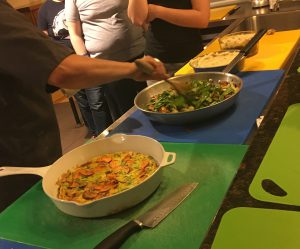
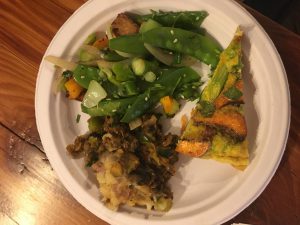




























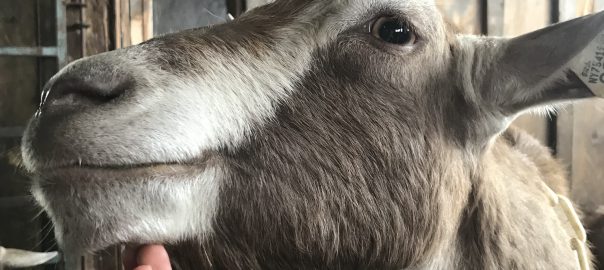

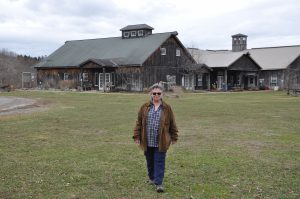


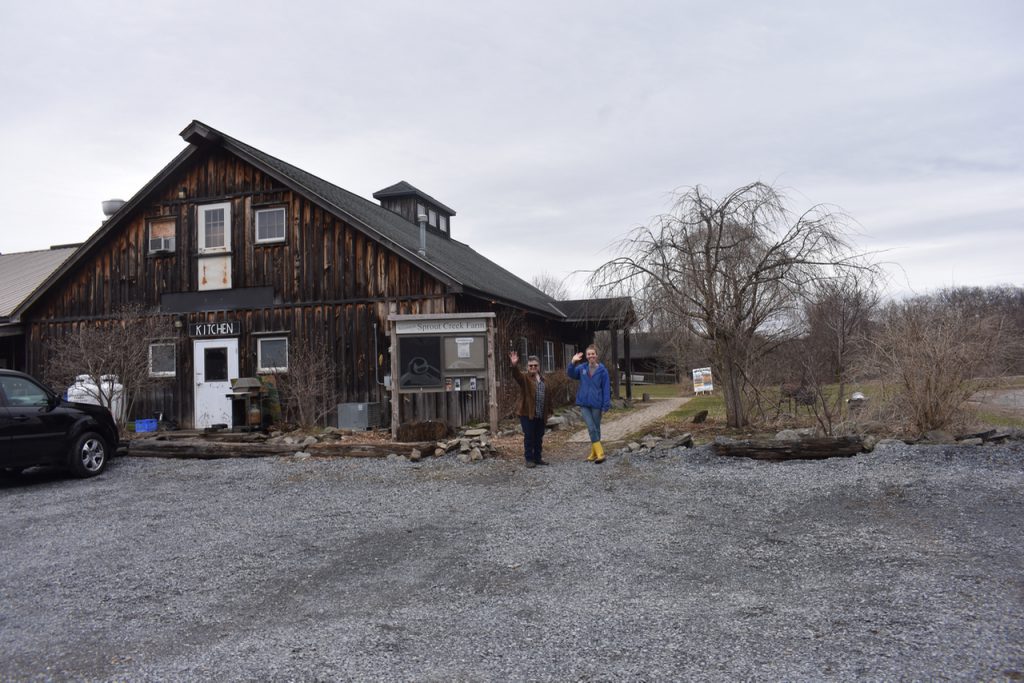

 Hello all! My name is Nick and I’m from Staten Island, NY. Today I got the lucky chance to visit Sprout Creek Farm and make a new four-legged friend. Whether this friendship was reciprocated by the goat (pictured) remains unclear. Will have to visit the farm again to confirm.
Hello all! My name is Nick and I’m from Staten Island, NY. Today I got the lucky chance to visit Sprout Creek Farm and make a new four-legged friend. Whether this friendship was reciprocated by the goat (pictured) remains unclear. Will have to visit the farm again to confirm.